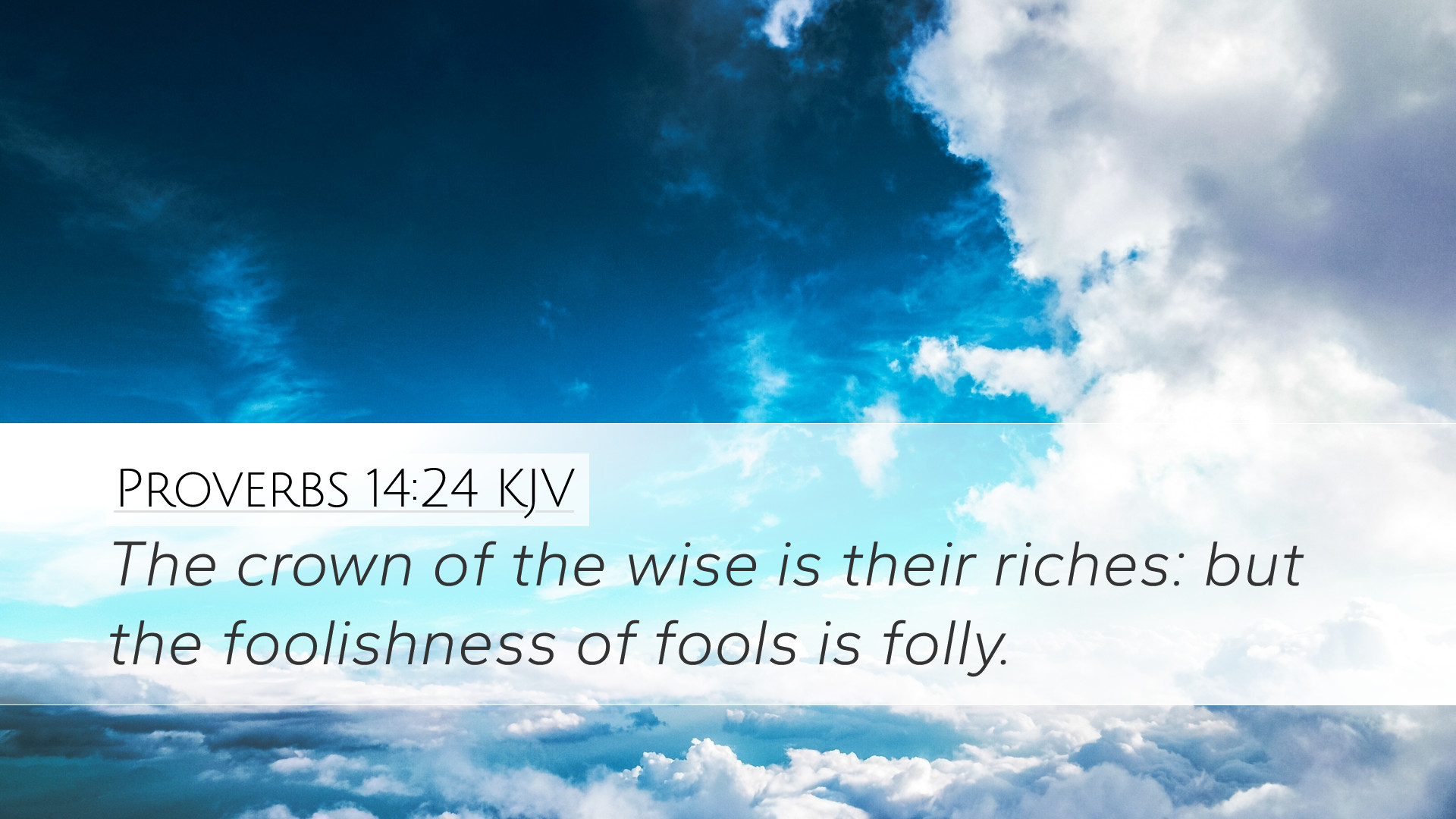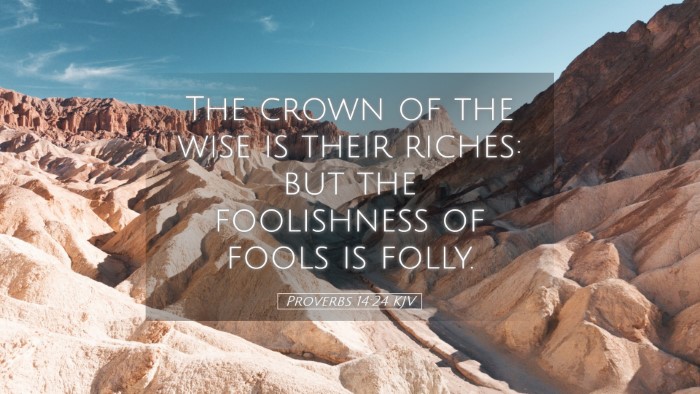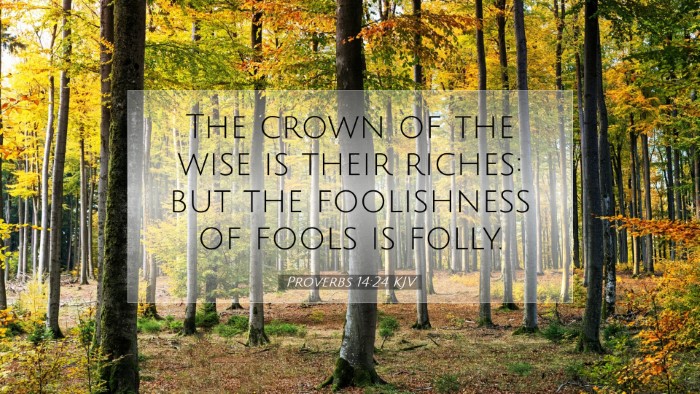Proverbs 14:24 Commentary
Verse: "The crown of the wise is their riches: but the foolishness of fools is folly."
Introduction
This verse from the Book of Proverbs encapsulates the contrasting outcomes of wisdom and folly. It serves as a reminder to the faithful about the enduring value of wisdom and the transient nature of foolishness. Through a synthesis of insights from notable public domain commentaries, including those by Matthew Henry, Albert Barnes, and Adam Clarke, we will delve into the profound implications of this verse.
Exegesis of Proverbs 14:24
This verse can be dissected into two main parts: the first clause highlights the rewards of wisdom, while the second emphasizes the consequences of foolishness. Each part warrants critical analysis through different lenses of understanding.
Wisdom and Wealth
1. The crown of the wise is their riches:
- Matthew Henry interprets "the crown of the wise" as a metaphor for the honor and dignity that wisdom brings. Unlike material wealth, wisdom is seen as a crown that signifies status and value in a person\'s life, reflecting inner character and virtue.
- Albert Barnes notes that the riches gained through wisdom are not solely financial but encompass spiritual and moral wealth. A wise person accumulates understanding and knowledge, which is far more valuable than mere monetary gain.
- Adam Clarke elaborates by suggesting that true wisdom leads to prosperity in all areas of life, including relationships, personal growth, and societal standing. The wise manage their resources well, leading to both financial stability and personal fulfillment.
Folly and Its Consequences
2. But the foolishness of fools is folly:
- Matthew Henry contrasts the outcome of foolishness with the rewards of wisdom by explaining that the foolish are characterized by their inability to recognize their lack of wisdom. Their folly leads them to make poor choices that ultimately lead to their downfall.
- Albert Barnes points out that folly is not just the absence of wisdom but an active pursuit of unwise actions. The foolish person revels in their foolishness, often unaware of the negative repercussions that follow.
- Adam Clarke refers to the concept of folly as a form of self-destructive behavior. The foolish will often disregard wise counsel and follow their own irrational paths, leading them into greater trouble and moral degradation.
The Contrast of Outcomes
This verse emphasizes the stark difference between the wise and the foolish, highlighting a common theme in Proverbs—the idea that wisdom leads to life while folly leads to ruin.
- Pastoral Insight: For pastors, this text can serve as a teaching tool illustrating the importance of cultivating wisdom within the congregation. Encouraging members to seek out the counsel of the wise can help them navigate life more effectively and enrich their spiritual walk.
- For Students and Scholars: The contrast presented in this verse invites critical reflection on the implications of one's choices. Students of Scripture may find themselves pondering the societal value placed on wisdom versus folly in contemporary contexts.
The Practical Application of Wisdom
The practical implications of this verse are far-reaching. Here are several applications that may arise:
- Seeking Knowledge: Believers are encouraged to actively pursue knowledge and wisdom through study of Scripture, prayer, and engagement with wise mentors.
- Financial Stewardship: Recognizing that wisdom produces wealth can motivate individuals to be better stewards of their resources, both in financial matters and in relationships.
- Community Impact: As the wise flourish, their influence can uplift their communities. The pursuit of wisdom has broader implications, promoting overall well-being.
Conclusion
In conclusion, Proverbs 14:24 serves as a vivid reminder of the blessings associated with wisdom and the pitfalls associated with foolishness. As scholars, theologians, and pastors engage with this verse, it becomes a source of exhortation to seek wisdom and avoid the traps of folly. By embracing the teachings encapsulated in this proverb, one can aspire to live a life that reflects the richness of understanding and moral integrity.


